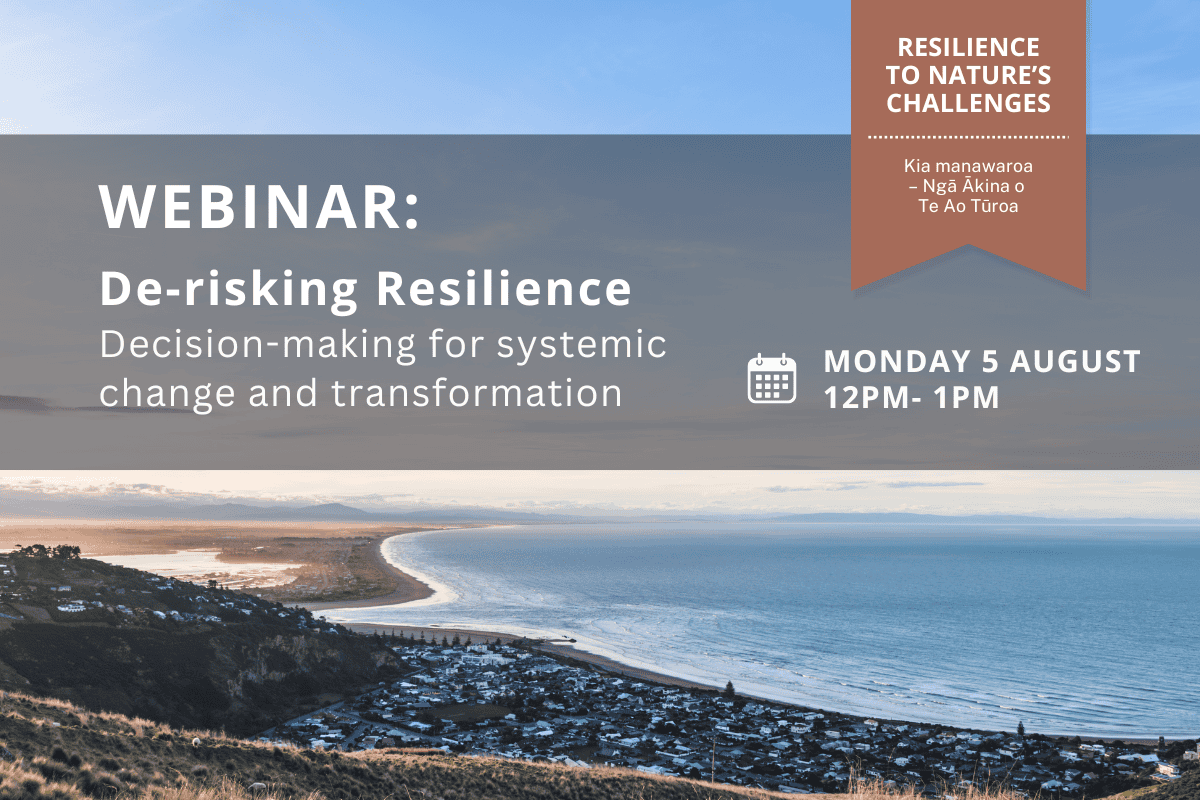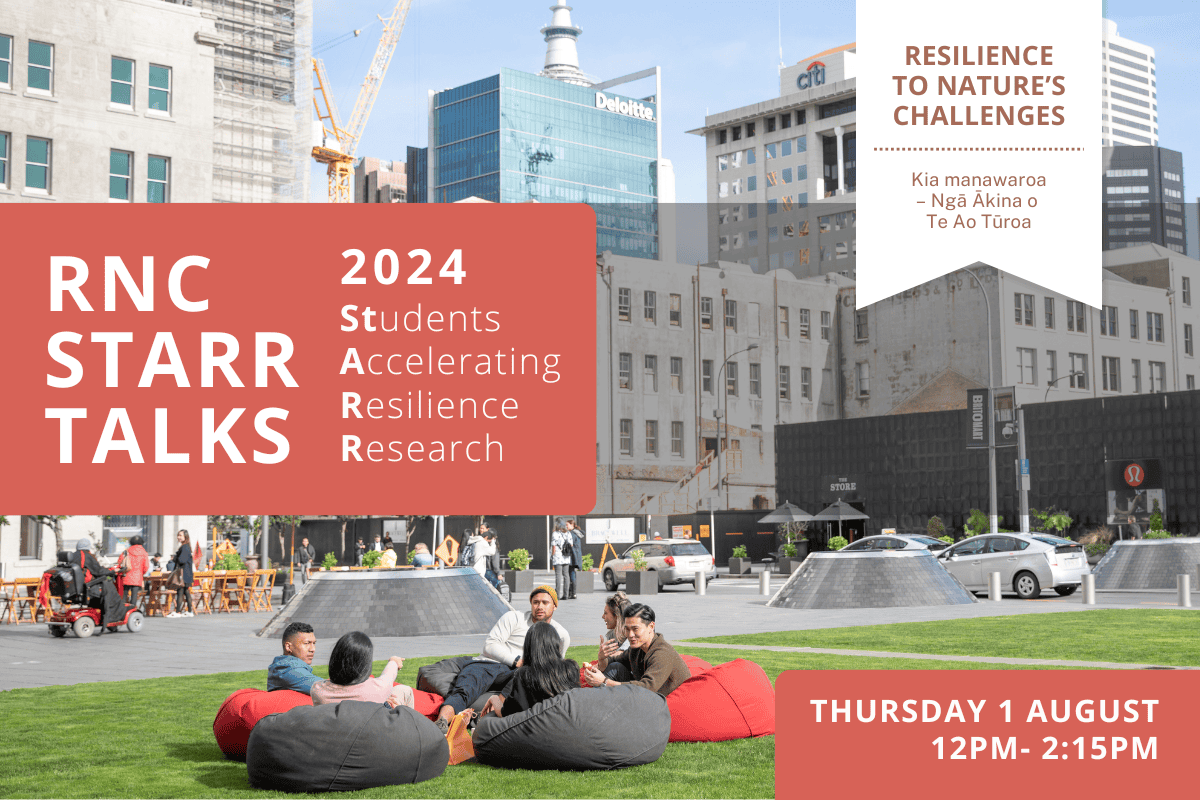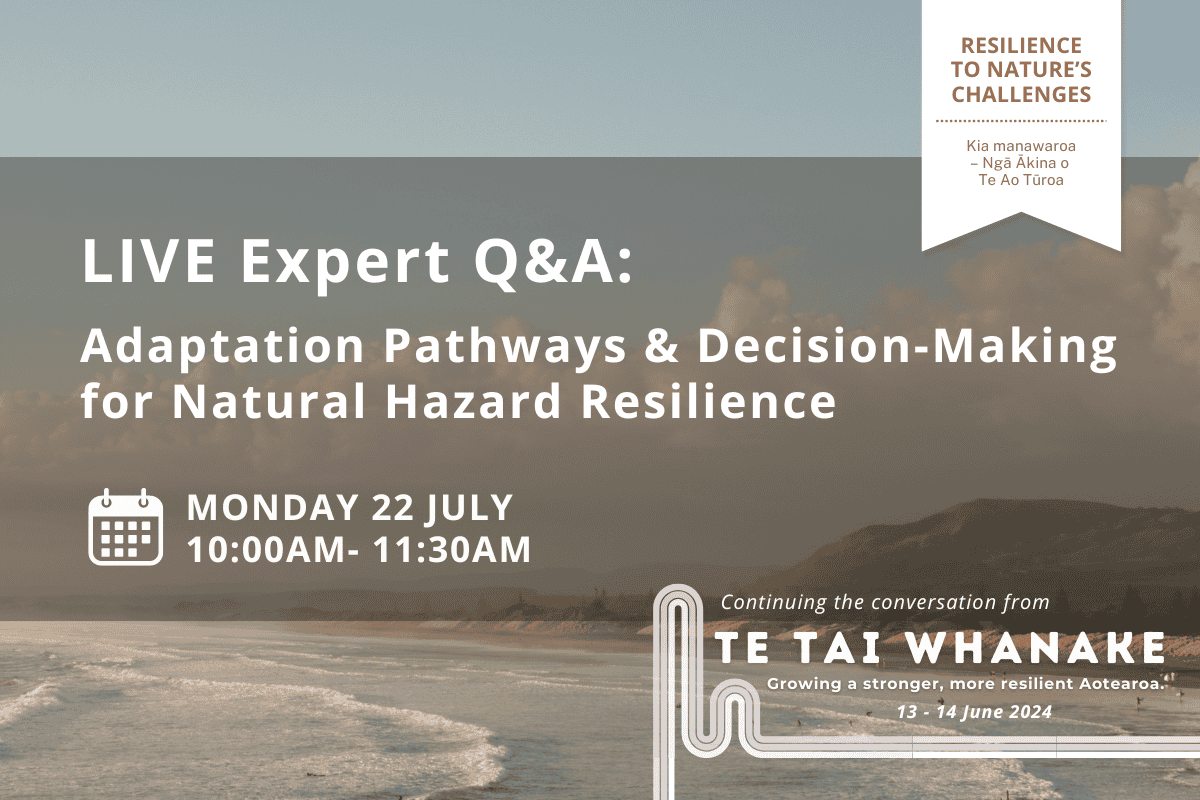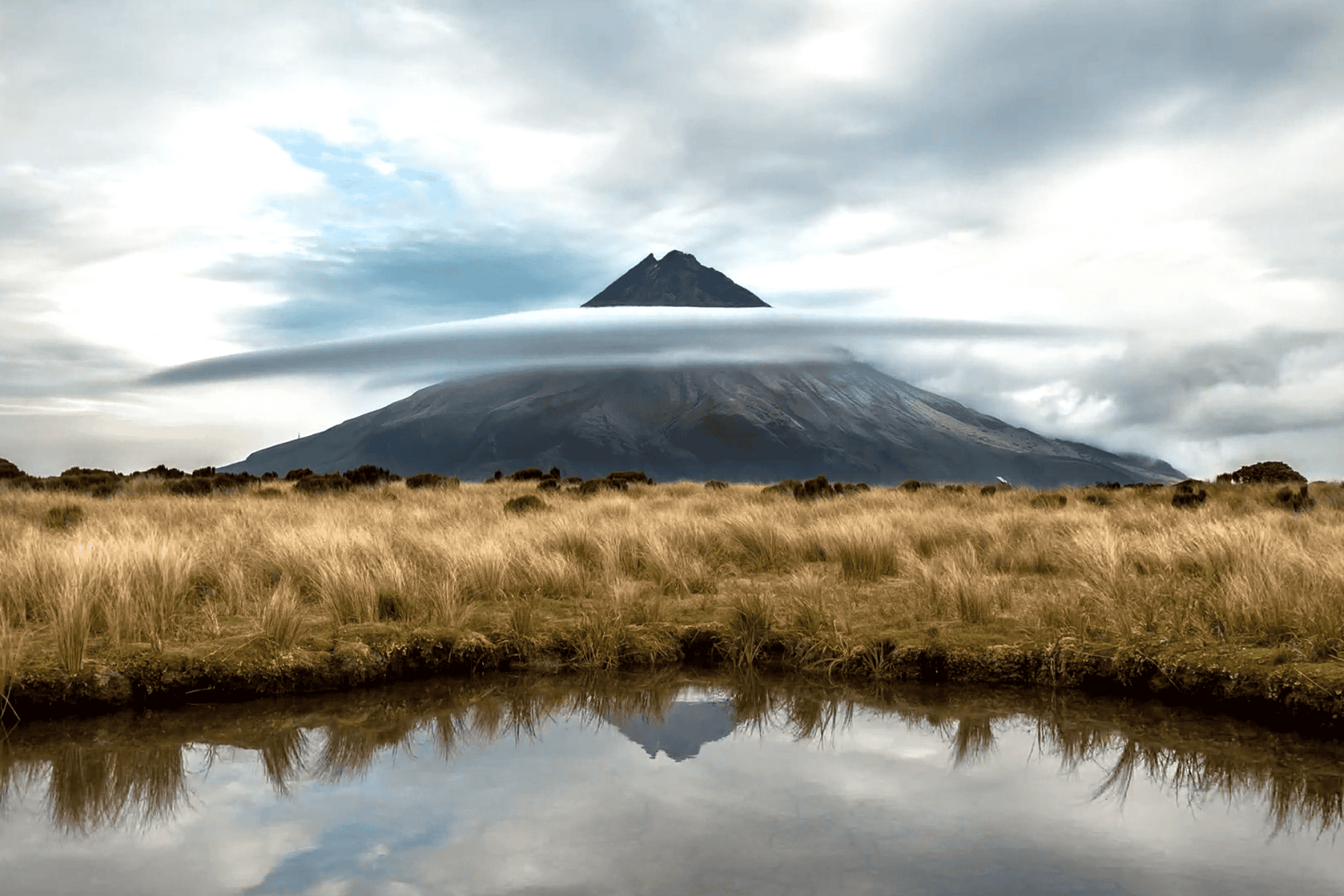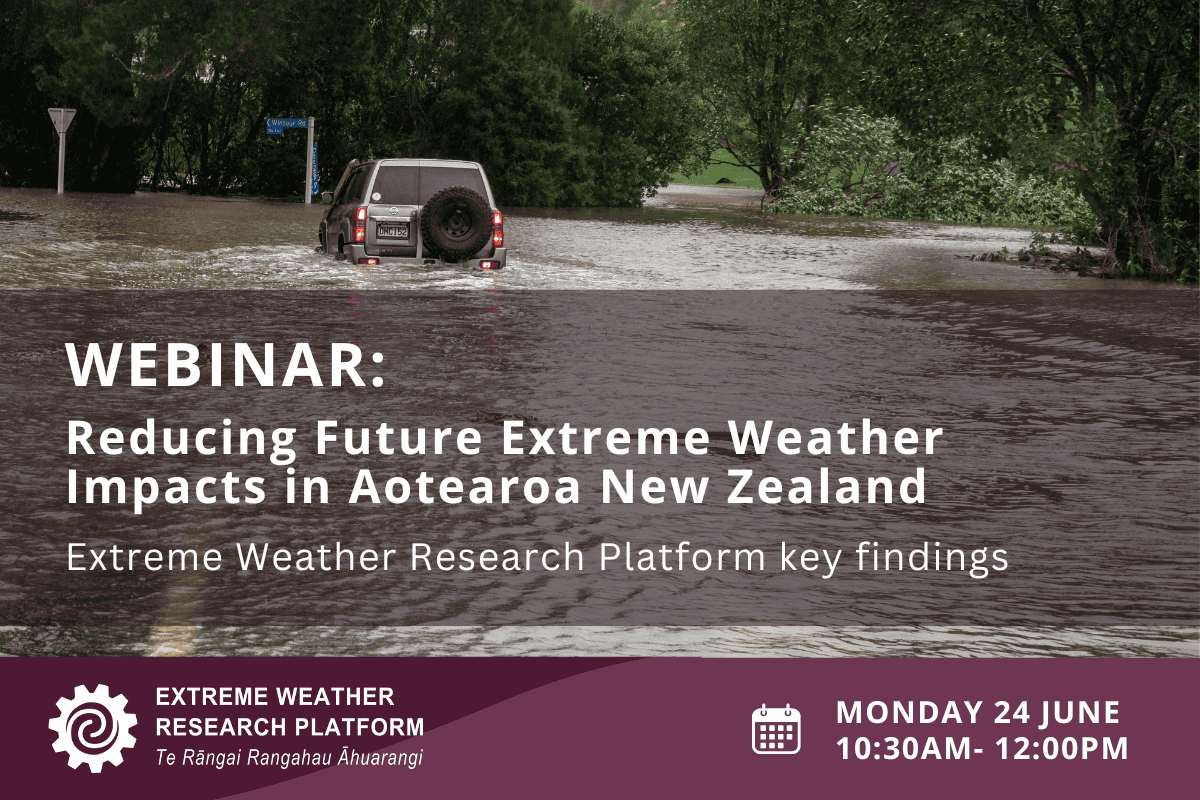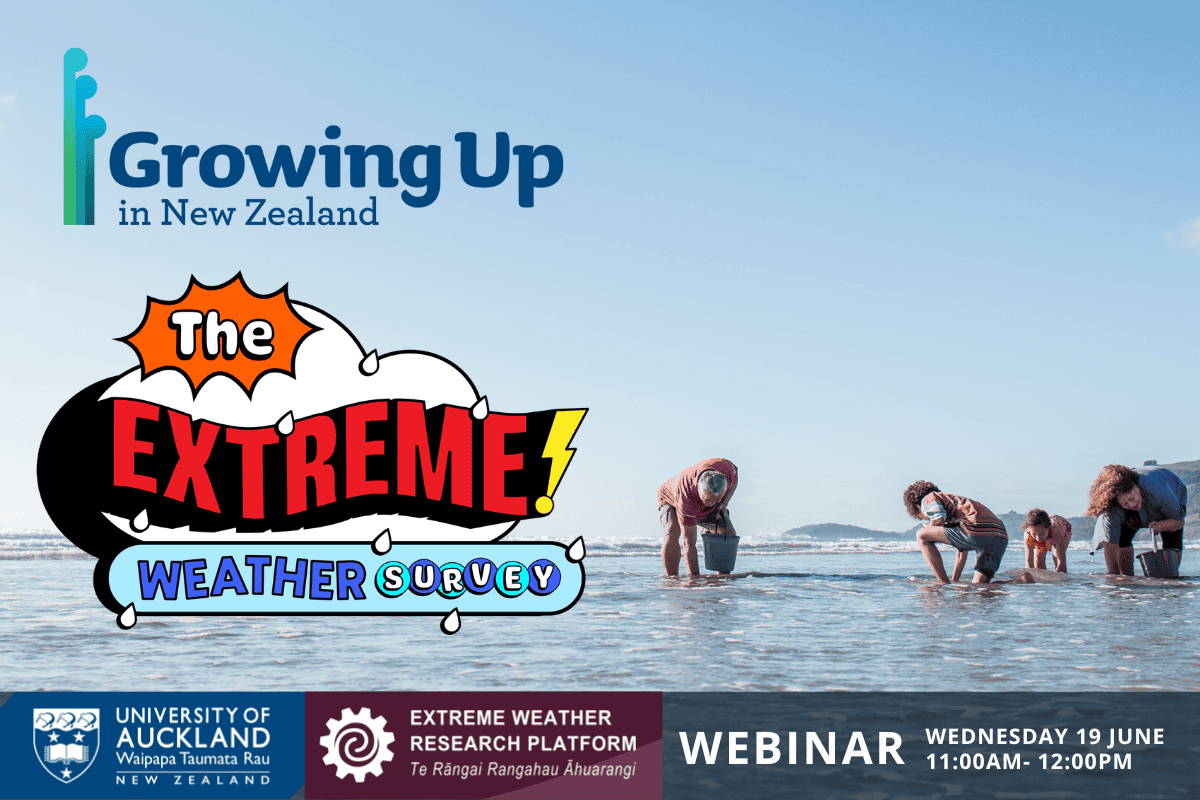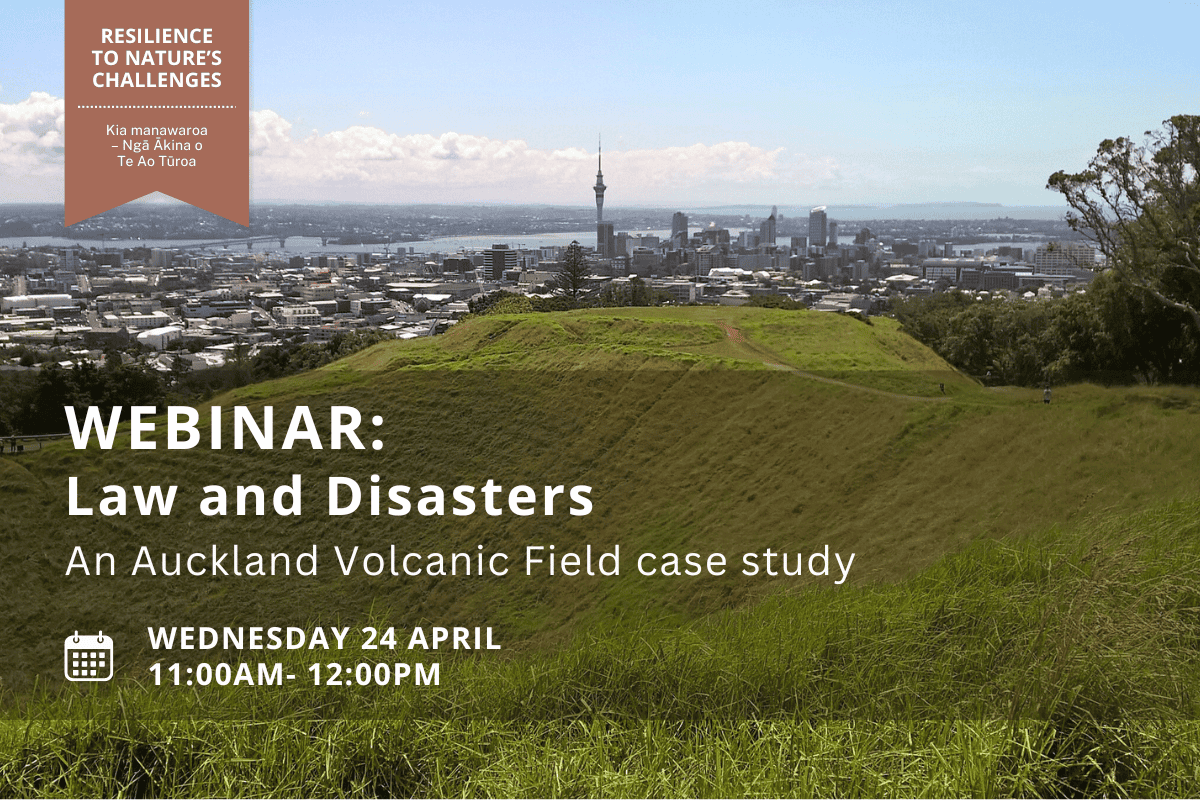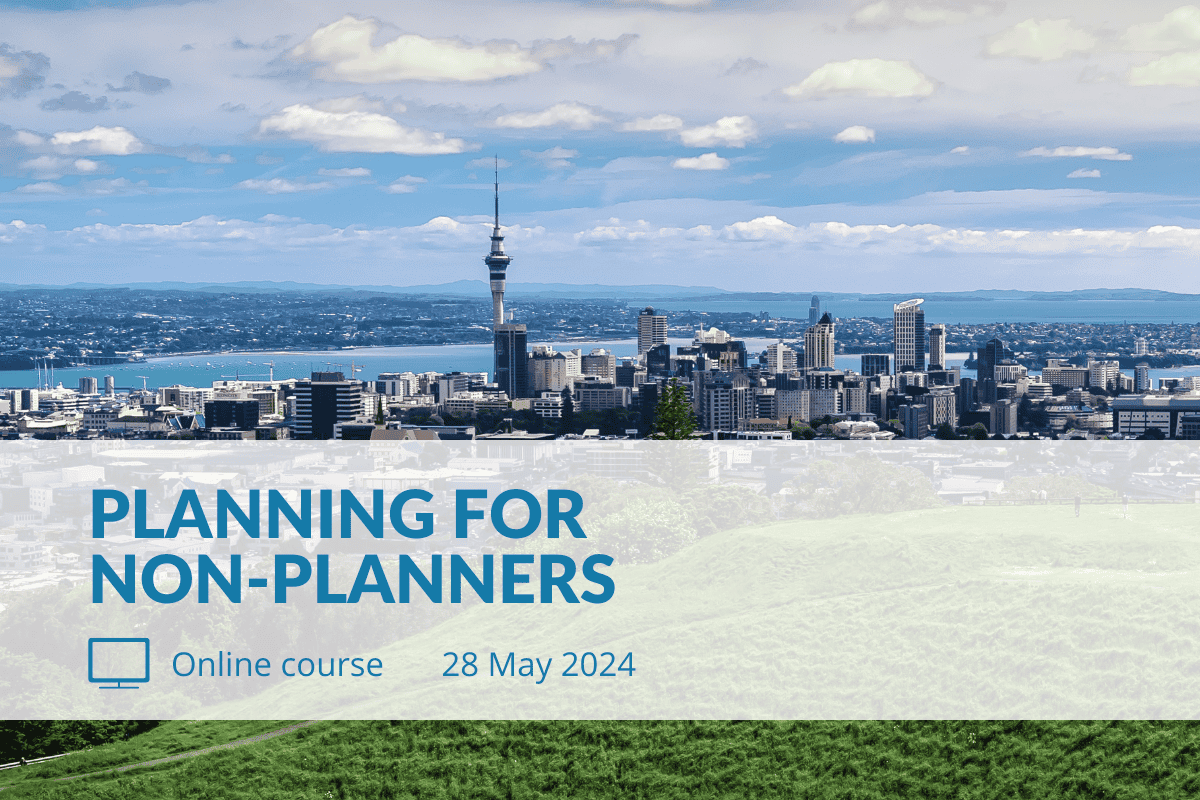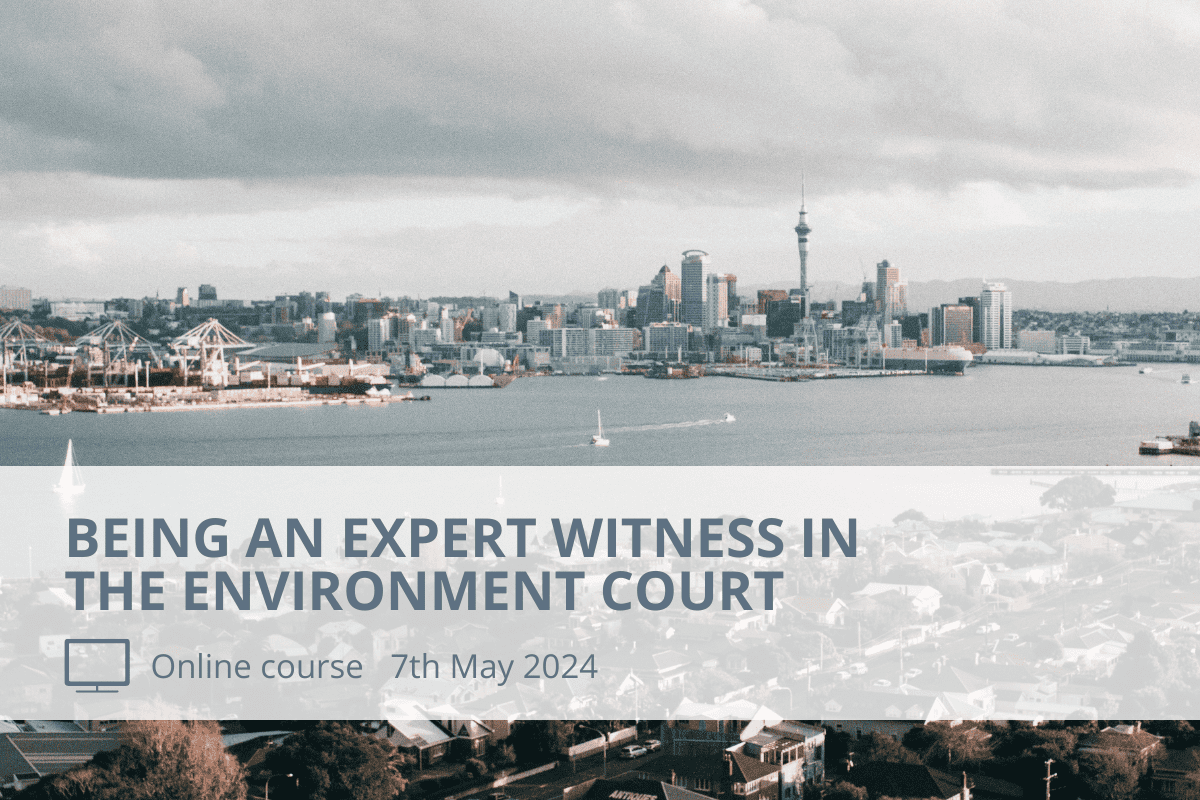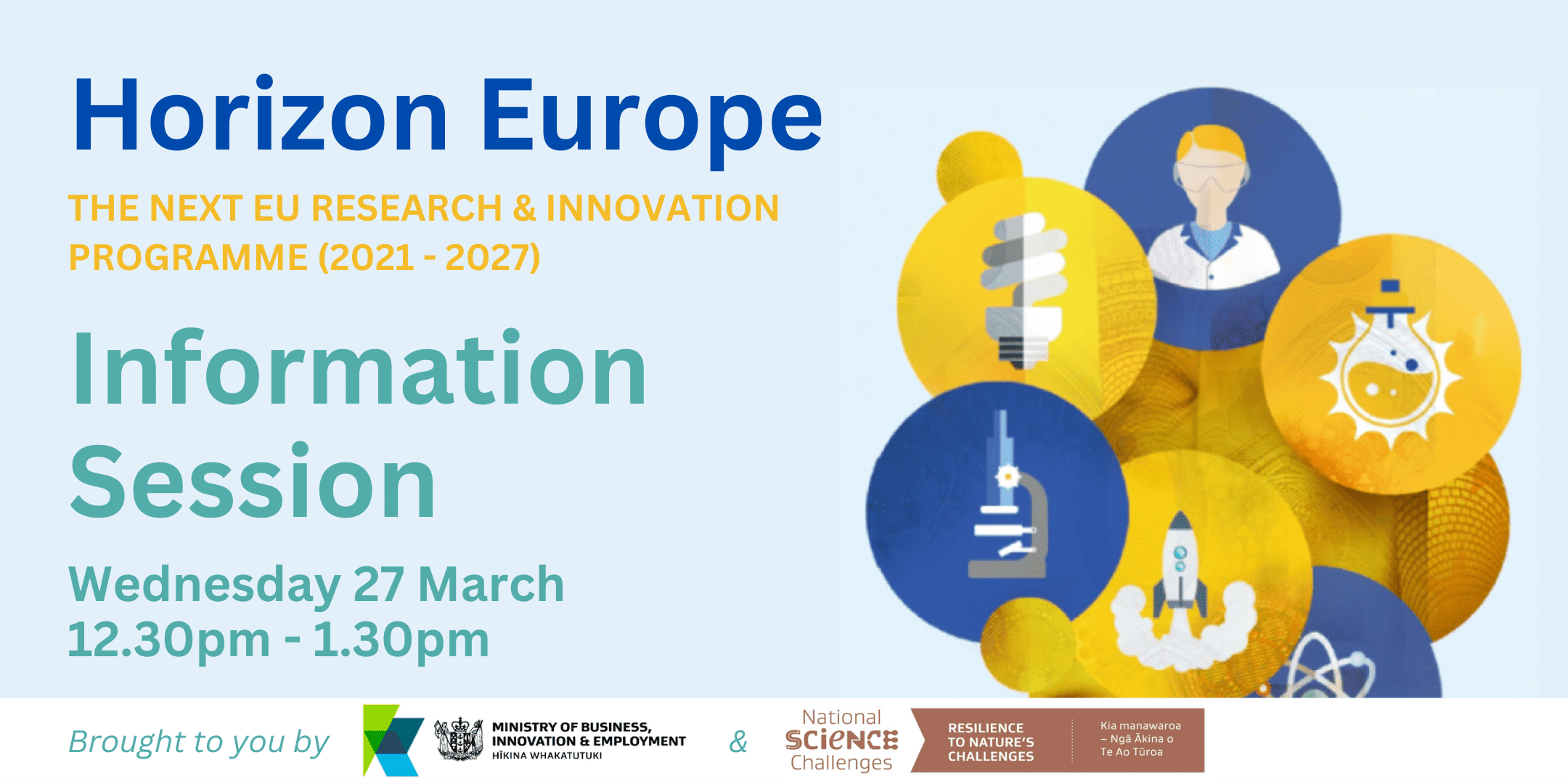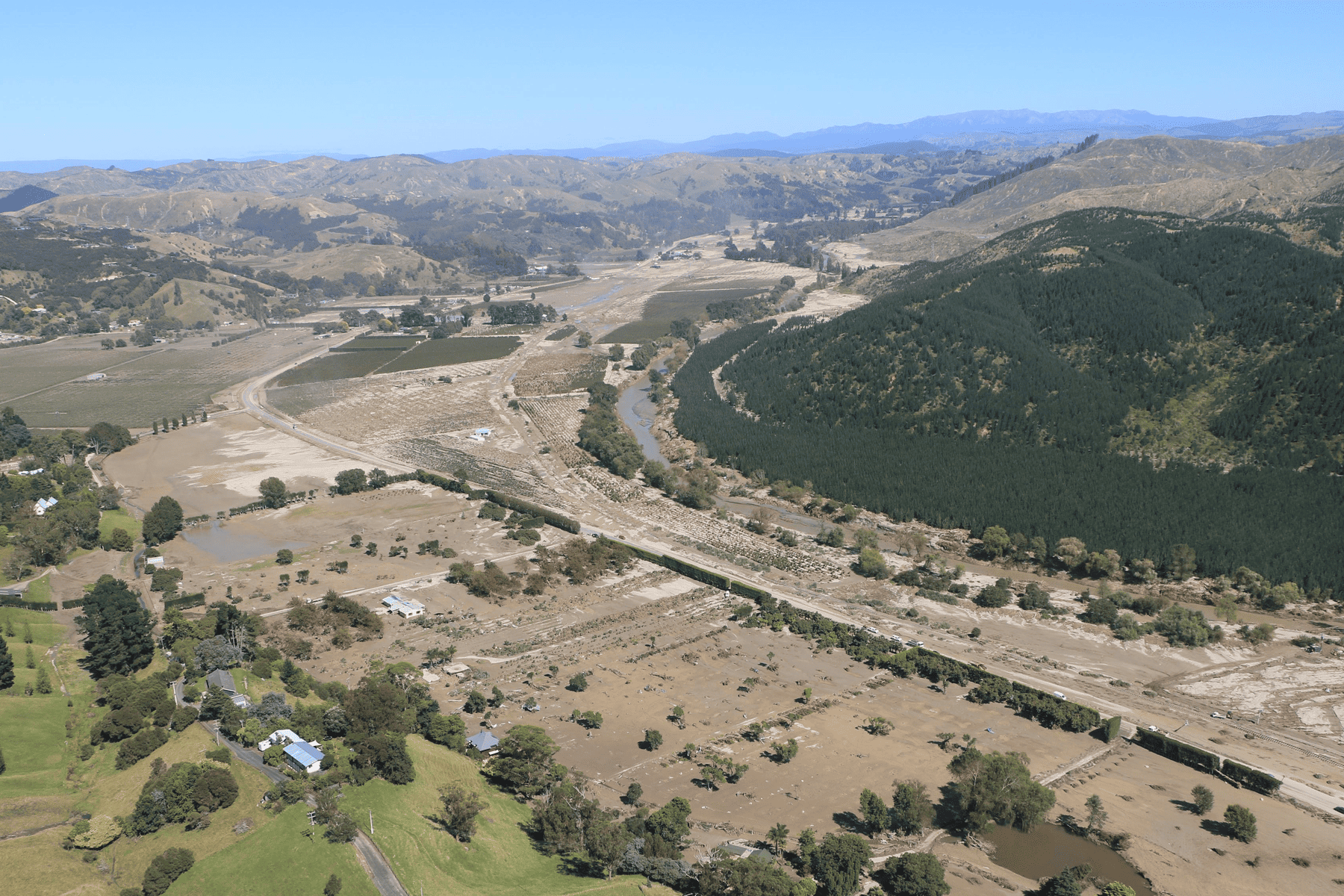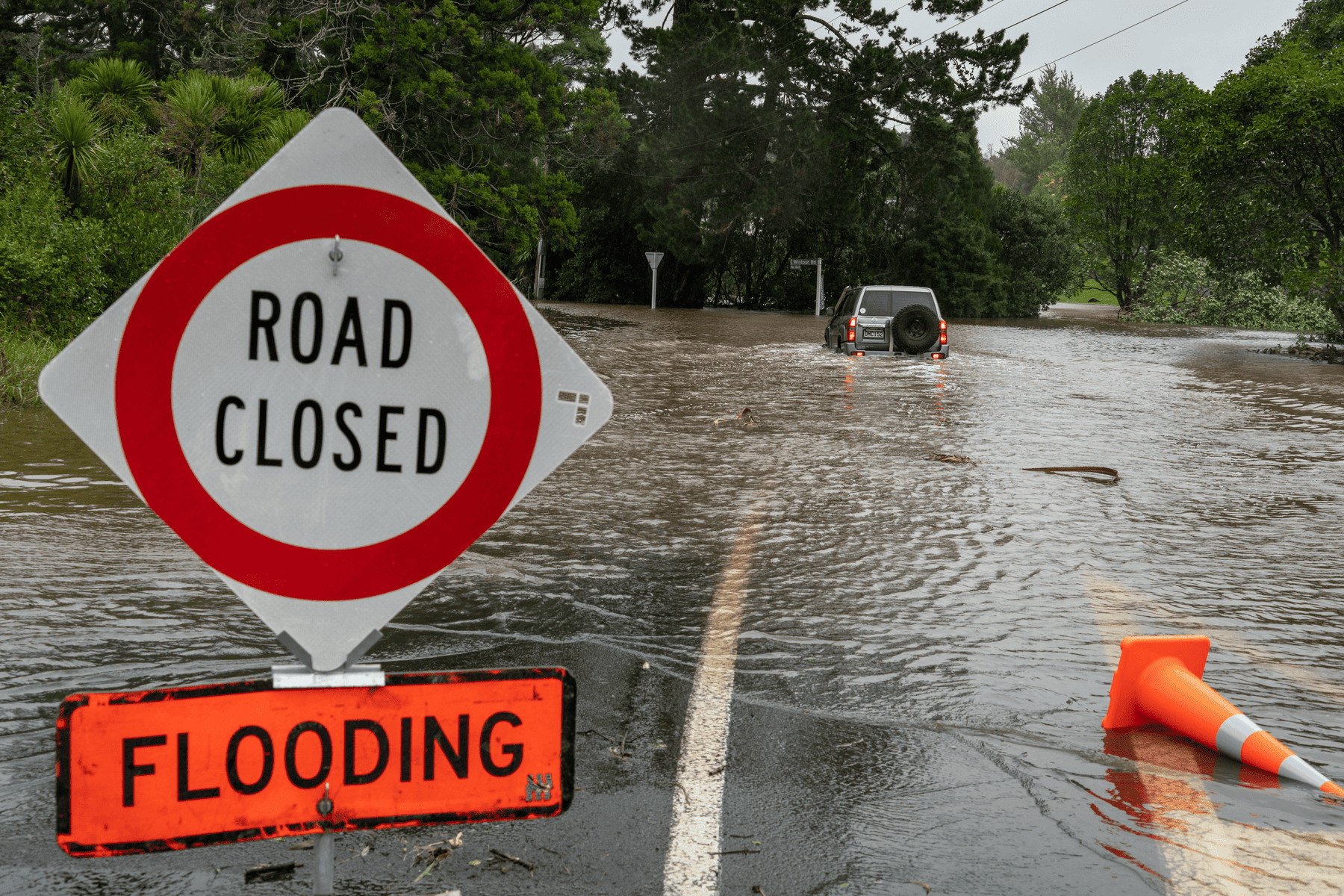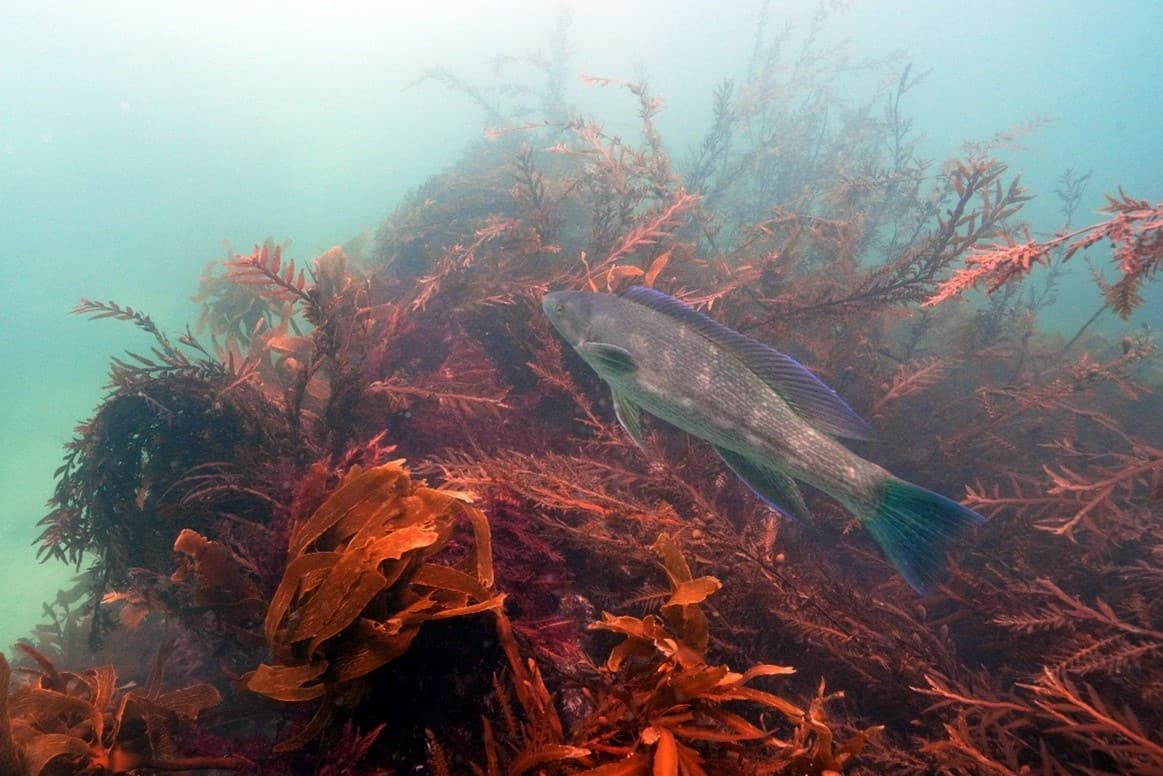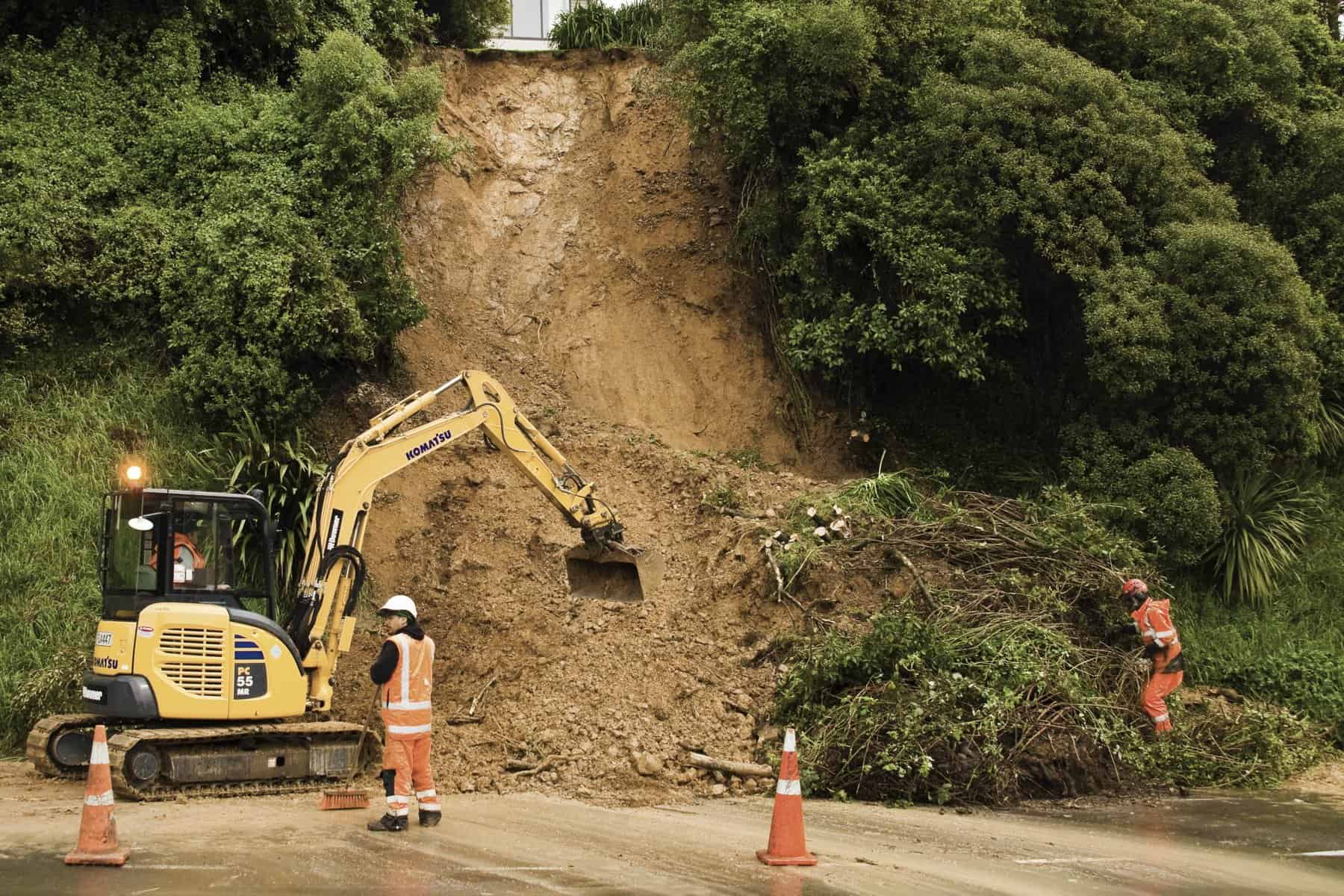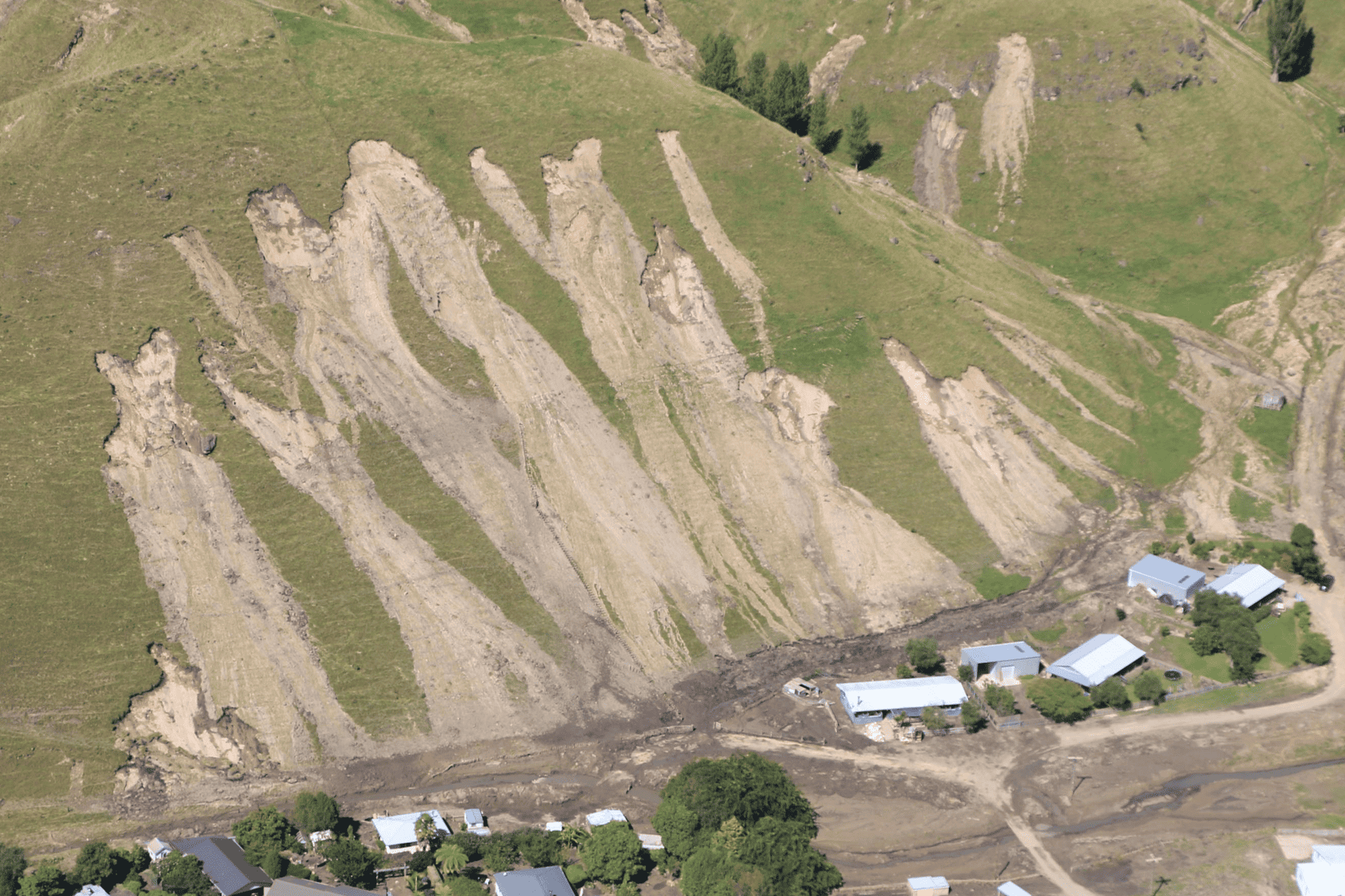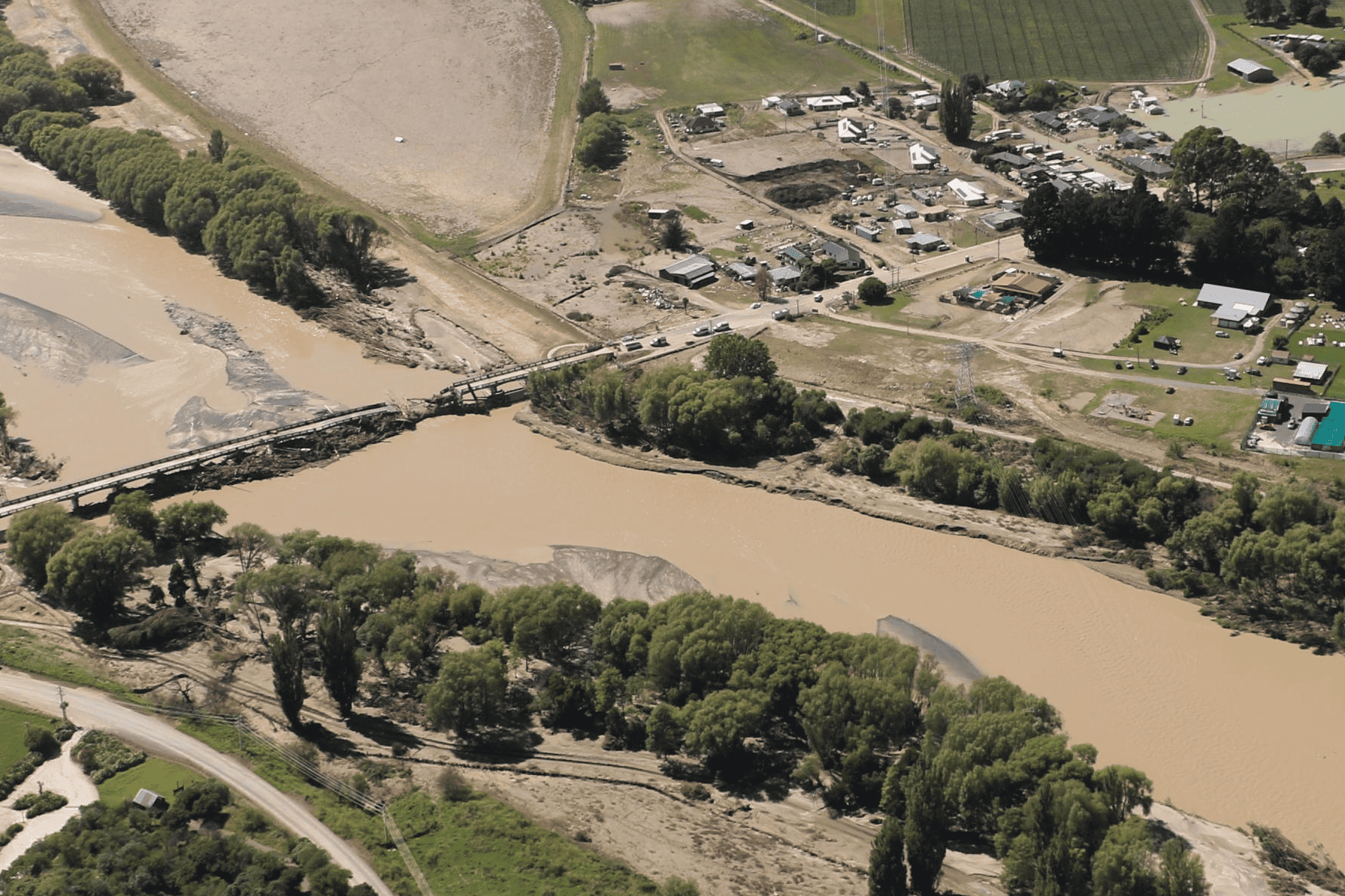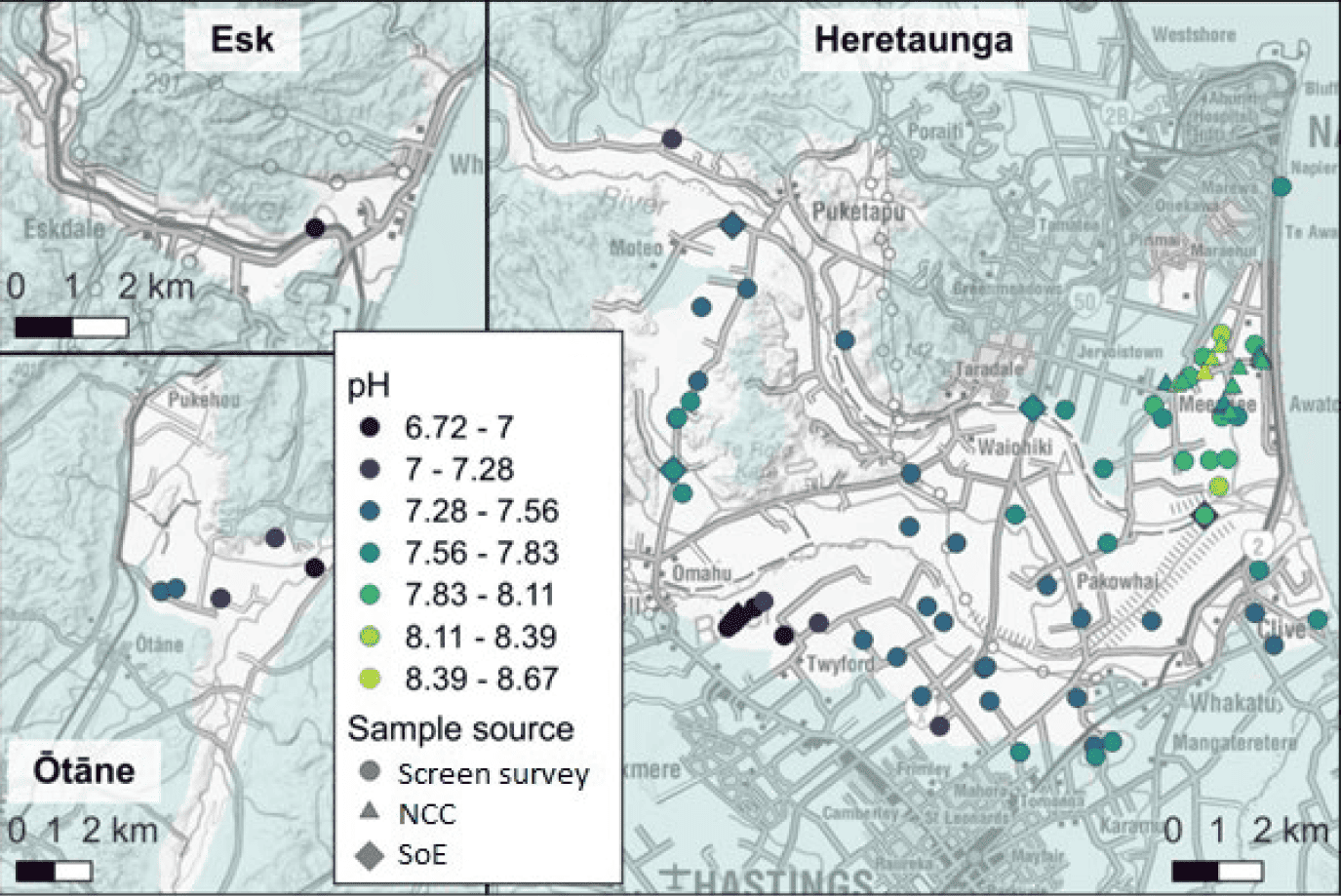Decision-making for resilience requires innovation. We need to tackle ingrained challenges and ‘path dependencies’ where previous decisions may limit our options to address future problems. To make progress on issues such as planned retreat and climate adaptation we need a greater understanding of how research can support policy and decision-making for systematic change and transformation. […]
STARR – Students Accelerating Resilience Research 2024
During our 10 years of mahi, Resilience to Nature’s Challenges has funded over 120 post-graduate students. Our students, and others like them, are not only at the cutting edge of science, they are the future of research capability and expertise that will continue our mission of accelerating resilience to natural hazards in Aotearoa New Zealand, […]
Live Expert Q&A: Adaptation Pathways & Decision-Making for Natural Hazard Resilience
Adaptation to natural hazards is essential for our communities and infrastructure facing the recurring effects of disruptive natural hazards. When it comes to mitigating these impacts, decision-makers have to navigate considerable institutional, professional, and political risks. In May 2024, the Resilience to Nature’s Challenges symposium Te Tai Whanake – Growing a stronger, more resilient Aotearoa started to […]
What happens to Resilience to Nature’s Challenges from July 2024?
The National Science Challenges end on 30 June 2024. What is happening with our research and researchers? What about our website? What next for collaborative natural hazards resilience research? This article tackles these and other FAQs. Why is the Resilience Challenge ending? The Resilience Challenge is one of 11 National Science Challenges established in 2014 as ten-year, […]
WEBINAR: Reducing Future Extreme Weather Impacts in Aotearoa New Zealand
Join us for an insightful webinar where researchers from the Extreme Weather Research Platform (EWRP) will present their key findings. In response to the extreme weather events in North Island, the Ministry of Business, Innovation and Employment (MBIE) allocated $10.8 million in February 2023 for urgent scientific research and data collection. The funding was distributed […]
WEBINAR: Growing Up in New Zealand Extreme Weather Survey
Extreme weather events can have negative consequences for mental and physical health. Extreme weather or natural disasters are related to increases in post-traumatic stress symptoms, depression, and anxiety in adults and young people. Furthermore, those exposed to severe weather conditions are at risk of injury, disease, and worsening of chronic illnesses. Rangatahi/young people may be particularly […]
Q&A with Dr Mehrdad Aghamohammadi
Mehrdad is a postdoctoral researcher at the University of Auckland with specialized expertise in mechatronics and data science. His role was with the Resilience Challenge Weather and Wildfire programme is within the “Quantification of Wind, Snow, and Ice Loading on New Zealand’s Transmission Line Network During High Impact Weather Events” project, a collaboration partnering with […]
WEBINAR: Law and Disasters – An Auckland Volcanic Field case study
Are we prepared for disasters? As a nation we have a history of pushing through emergency legislation in the wake of natural hazard events to govern our emergency response. This has led to an expectation that post-event bespoke frameworks will be introduced to manage post-disaster recovery. Is there a better way? Instead of treating disasters as […]
Professional Development Opportunity: Planning For Non-Planners
>> Are you a natural hazards researcher or scientist working in the planning space? >> Do you know how and when your work can inform land use planning? The Resilience Challenge has been collaborating with EQC Toka Tū Ake and the New Zealand Planning Institute (NZPI) to offer professional development courses specifically for natural hazards researchers and scientists working in […]
Professional Development Opportunity: Being an expert witness in the environment court
>> Are you a natural hazards researcher or scientist working in the RMA space? >> Have you been asked to present evidence or be an expert witness at the Environment Court? The Resilience Challenge has been collaborating with EQC Toka Tū Ake and the New Zealand Planning Institute (NZPI) to offer professional development courses specifically for natural hazards researchers and […]
Webinar: SMART Resilient Communities
How can emerging technologies help build community resilience? Technology is increasingly transforming the cities and communities that we live in, and the way we live in them. How can we harness technology to help build our resilience to natural hazards and disasters? Join us as we hear from members of our SMART Resilient Communities project team […]
A Trip to AGU
At the end of 2023, our Resilience Challenge Built and Coastal Programmes’ PhD student Akuhata Bailey-Winiata, from the University of Waikato, attended the American Geophysical Union (AGU) Fall Meeting in San Francisco, California. AGU brings geoscientists from around the globe for five days of interesting keynotes, talks and poster sessions where students, academics and researchers […]
Horizon Europe Online Information Session
This session will present details of a new funding opportunity for Aotearoa New Zealand-based researchers, facilitated by the Ministry of Business, Innovation and Employment (MBIE), on behalf of the European Union. Horizon Europe is the European Union (EU)’s largest ever programme for research and innovation. It tackles climate change, helps to achieve the UN’s Sustainable Development […]
New LiDAR data coming online
By Sarah McDermott, NIWA NIWA is co-ordinating the collection of remote sensing data to assist understanding of the impacts of the extreme weather events of early 2023. The scope of the project is to supply aircraft LiDAR* data for the Hawke’s Bay and Tairawhiti/Gisborne regions, and high quality aerial imagery over much of the North Island. […]
Flood assessment shows need for consistency and collaboration
By Emily Lane, NIWA Cyclone Gabrielle was a severe ex-tropical cyclone that devastated parts of the North Island of New Zealand in February 2023. The scope of this project was to provide flood risk and flood modelling support, as well as engagement and communications support. The aim of the research was to better understand the scale […]
Cyclone Gabrielle impacts on nearshore marine ecosystems
By Leigh Tait, NIWA Cyclone Gabrielle significantly impacted the Hawke’s Bay and Tairāwhiti nearshore marine coastal zone, an area of vital social, cultural, aesthetic and economic importance. The focus of this work was to quickly and effectively acquire data to determine the stressors (sediment and woody debris) and their long-lasting impacts on invertebrates and other […]
Largest known record of mapped landslides from a single event
Cyclone Gabrielle was the largest landslide-triggering event on record in Aotearoa. Our response required development of new landslide mapping and modelling approaches in order to collate the landslide data. This novel approach provides stakeholders with a timely and sufficient level of spatial and positional accuracy about landslide occurrence and severity – where landslides could occur, […]
Rapid assessment of land damage reveals exotic forest less effective at reducing landslide probability
Cyclone Gabrielle was a severe ex-tropical cyclone that occurred in February 2023. It caused severe landsliding in several zones along the east coast of the North Island. As part of the cyclone response, the Ministry for the Environment contracted Manaaki Whenua – Landcare Research to do a rapid assessment of the damage in hill country […]
Supporting critical infrastructure recovery
By Charlotte Brown, Resilient Organisations The aim of this project is to combine data and lessons learned to provide an evidence-base to support critical infrastructure recovering decisions following the North Island extreme weather events in 2023. To date, critical infrastructure asset damage and service disruption data have been gathered from all affected regions. These data […]
Sampling survey shows little groundwater contamination
Cyclone Gabrielle caused severe flooding and damage across parts of the North Island. In the months following the event, Hawke’s Bay Regional Council (HBRC) initiated a project to identify potential contamination of groundwater in three areas of concern that were subject to significant floodwater inundation: the central north-western part of the Heretaunga Plain, Esk Valley […]
